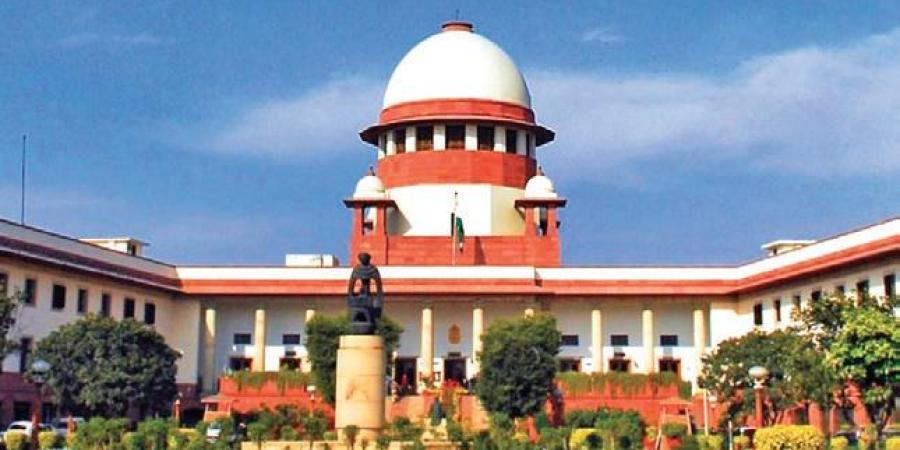Law on forfeiture of earnest money: Real EstateQuestion 1: How much deduction is reasonable and justifiable if the home buyer cancels the booking...

Landmark Decision: Bombay High Court Strikes Down Rule 6(1) of 2020 Consumer Protection Act, 2019, Signalling Shift in Consumer Rights Landscape
Landmark Decision: Bombay High Court Strikes Down Rule 6(1) of 2020 Consumer Protection Act, 2019, Signalling Shift in Consumer Rights Landscape
The pivotal question at hand revolves around whether the recent judgment from the Honourable High Court of Maharashtra, Pune bench, will nullify the entire selection committee process for appointing 112 Presidents/Members of Consumer Commissions in the state.
Reference Case: High Court of Judicature at Bombay, Nagpur Bench, Writ Petition No. 3680/2023 Dr.Mahendra Bhaskar Limaye & others vs
- Union of India, Through its Secretary, Ministry of Consumer Affairs, Food and Public Distribution, Department of Consumer Affairs, Krushi Bhavan, New Delhi.
- State of Maharashtra, Through its Secretary, Food and Civil Supplies and Consumer Affairs, Department/Ministry, Mantralaya, Mumbai-32.
Dr Prem Lata, Legal Head VOICE
Facts & Relief sought in writs: WPs 3680, 2107 & 2496-23
These writ petitions filed under Article 226 of the Constitution of India –
- Seek to raise a challenge to Rule 6(1) and Rule 10(2) of the Consumer Protection Act 2019 (Qualification for Appointment, method of recruitment, Procedure for appointment, term of office, resignation and removal of the President and members of the State Commission and District Commission).
- A declaration has also been sought that the petitioners who were the members at various District Commissions are eligible for re-appointment to the post of member of the District Commission under Rule 10(2) of the Rules of 2020.
Two Issues: Writ Petition No. 2107 of 2023
Writ Petition No. 2107 of 2023 has been preferred by Members at District Commissions in the State of Maharashtra. Besides raising challenging to
- Rule 6(1) of the Rules of 2020
- The provisions of Rule 10(2) of the said Rules are challenged to the extent the tenure of the District Commission is restricted to a period of four years.
- The petitioners seek a declaration that they are eligible for being considered for re-appointment to the post of member on the basis of earlier successfully completed the process of selection which included written examination and interview as per the Rules prevailing then.
Similar issue: Writ Petition No. 2496 of 2023
- Writ Petition No. 2496 of 2023 filed by the petitioners who were functioning as President/members of District Commissions in the State of Maharashtra.
- Seek a declaration that they are eligible for being considered for re-appointment to the post of President/Members of the District Commission on the basis of having completed the process of selection including written examination and interview as per the prevailing rules.
Common Judgment passed in WPs 3680, 2107 & 2496-23
Issue 1: Dominance of executives over Judicial Person, chairman
(Writ 3680 of 2023) Challenge to Rule 6(1) of the Rules of 2020:
Rule 6(1) of the Rules of 2020 reads as under:-
“6 Procedure of appointment. — (1) The President and Members of the State Commission and the District Commission shall be appointed by the State Government on the recommendation of a Selection Committee, consisting of the following persons, namely:-
(a) Chief Justice of the High Court or any Judge of the High
Court nominated by him-Chairperson;
(b) Secretary in charge of Consumer Affairs of the State
Government – Member;
(c) Nominee of the Chief Secretary of the State – Member.”
According to the said provision, the President and the Members of the State Commission and the District Commission can be appointed by the State Government on the recommendation of the Selection Committee. The constitution of the Selection Committee consisting of two members from the Executive as the Secretary in-charge of the Consumer Affairs and a nominee of the Chief Secretary of the State, the doctrine of separation of powers is violated. In the light of the law laid down in these decisions, it is the contention of the petitioners that Rule 6(1) of the Rules of 2020 compromises the aspect of primacy to the judiciary in the Selection.
Hence HC HELD –
- Rule 6(1) invalid and the notifications dated 10.04.2023 and 13.06.2023 would not survive. They are accordingly quashed.in the light of earlier decided case by the SC in the matter of Rojer Mathew Versus South Indian Bank Limited & Others [(2020) 6
SCC 1],
- Madras Bar Association (M.B.A. III) Versus Union of India &
Another [(2021) 7 SCC 369] and
- Madras Bar Association (M.B.A. IV) Versus Union of India & Another [2021 SCC OnLine SC 463].
Rule 6(1) of the Rules of 2020 has been struck down, the notifications dated 10.04.2023 and 13.06.2023 would not survive. They are accordingly quashed.
Issue 2: Tenure and re-appointment of members /president
(Writ 2017 of 2023 & Writ Petition No. 2496 of 2023)
Challenge to Rule 10(2) as regards tenure of four years:
Rule 10(2) of the Rules of 2020 has been challenged to the extent the tenure of Office of Member of the State Commission as well as President and Member of the District Commission has been restricted for a term of four years or up to the age of 65 years whichever is earlier. Rule 10(2) of the Rules of 2020 reads as under:
“10. Term of Office of President or Member. –
Every member of the State Commission and the President and every member of the District Commission shall hold office for a term of four years or up to the age of sixty-five years, whichever is earlier and shall be eligible for reappointment for another term of four years subject to the age limit of sixty-five years, and such reappointment shall be made on the basis of the recommendation of the Selection Committee.”
Held
- Rule 10(2) of the Rules of 2020 to the extent it prescribes the tenure of the Members of the State Commission and the President and members of the District Commission to be four years is struck down as not being in consonance with the spirit of the law laid down in the Madras Bar Association III (supra).
Issue 3: Applicability of Rule 8(18) in re-appointment cases
Plea taken in these cases is that Rule 8(18) of the said rules indicates aspects to be taken into consideration by the Selection Committee while making recommendation for reappointment and the confidential reports, disposal of cases, performance during the first appointment, general reputation of a candidate be considered.
It is to be noted that Rule 6(9) of the Rules of 2020 empowering the Selection Committee to determine its procedure for making its recommendation has been struck down by this Court in Vijaykumar Bhima Dighe (supra) which judgment has been upheld by the Hon’ble Supreme Court. As a result Rule 6(9) of the Rules presently does not find place in the statute book. As a result there is no power with the Selection Committee to determine its procedure for making its recommendation in the matter of appointments to the post of Members of the State Commission including re-appointment cases. In other words, Selection Committee presently cannot determine its procedure for making its recommendations in the matter of appointment either fresh or re-appointment.
Issue 4: Validity of advertisement dated 23.05.2023
Plea taken: The advertisement dated 23.05.2023 is under challenge on the ground that the Hon’ble Supreme Court while issuing directions under Article 142 of the Constitution of India in The Secretary, Ministry of Consumer Affairs (supra) had directed holding of written test consisting of two papers. Since department has not followed the direction of SC, advertisement dated 23.05.2023 is to be declared invalid.
Background
Hon’ble Supreme Court has held that till suitable amendments were made in the Rules of 2020, directions were being issued under Article 142 of the Constitution of India that the appointment of President and Members of the State Commission and District Commission
should be made on the basis of performance in the written test consisting of two papers as indicated. The said direction reads as under:-
Paper-I (a) General knowledge and current affairs
(b) Knowledge of Constitution of India
(c) Knowledge of various Consumers related Laws as indicated in the Schedule (Objective Type)
Paper-II (a) One Essay on topics chosen from issues on trade and commerce consumer related issues or Public Affairs.
(b) One case study of a consumer case for testing the abilities of analysis and cogent drafting of orders (descriptive type)
The Department’s notice specifically outlines the details for Paper-II. According to the notice, Paper-II includes an essay question where candidates are required to attempt two topics—one must be answered in English, and the other in Marathi. Similarly, in the case study section, candidates are expected to attempt two case studies, with one being in English and the other in Marathi.
- Be noted that under Section 101(2)(n) of the Act of 2019 the Central Government has been empowered to make rules with regard to qualifications for appointment, method of recruitment, procedure for appointment, term of office, resignation and removal of President and members of the District Commission under Section 29 of the Act of 2019. There is no power conferred on the State Government to prescribe the mode of recruitment.
- Moreover, the Honourable Supreme Court, through directives exercised under Article 142 of the Constitution of India, has outlined the protocol for the conduction of the written test comprising two papers. The specific prescription of one essay and one case study for Paper-II has been articulated. Consequently, it is asserted that the Department exceeds its authority and jurisdiction by imposing additional requirements beyond the directives established under Article 142. These directions do not empower the Department to mandate candidates to compulsorily respond to one topic and attempt one case study in Marathi language, in addition to addressing such queries in English.
- In the said circular, negative marking for wrong answers is also provided which is also beyond the jurisdiction of state Government.
Final order
In the light of aforesaid discussion, the following order was passed
(A) Rule 6(1) of the 2020 Rules has been invalidated on the basis that it diminishes the judiciary’s participation in the appointment procedure for the President and members of the State Commission and the District Commission. The ruling asserts that this particular rule contradicts the essence of the Constitution Bench decision in Rojer Mathew (supra).
(B) Since Rule 6(1) of the Rules of 2020 has been struck down, the notifications dated 10.04.2023 and 13.06.2023 would not survive.
(C) Rule 10(2) of the Rules of 2020 to the extent it prescribes the tenure of the Members of the State Commission and the President and members of the District Commission to be four years is struck down as not being in consonance with the spirit of the law laid down in the Madras Bar Association III (supra).
(D) Given that the re-appointment of members of the State Commission, the President, and members of the District Commission, as outlined in Rule 10(2) of the 2020 Rules, is contingent upon recommendations from the Selection Committee, and in light of the striking down of Rule 6(9) of the 2020 Rules in the case of Vijaykumar Bhima Dighe versus Union of India & Others [Public Interest Litigation No. 11 of 2021 along with Writ Petition No. 1096 of 2021], the Selection Committee is advised to follow the appointment procedure for Members of the State Commission, the President, and Members of the District Commission. This involves considering the past performance in accordance with Rule 8(18) of the 2019 Rules until such time that Rule 6(9) of the 2020 Rules is appropriately amended.
(E) The notice issued by the Department of Food, Civil Supplies and Consumer Affairs along with the advertisement dated 23.05.2023 in relation to Paper-II is held to be without jurisdiction. Department to re-conduct the test in Paper-II by following the directions issued by the Hon’ble Supreme Court under Article 142 of the Constitution of India in The Secretary Ministry of Consumer AffairsVersus Dr.Mahindra Bhaskar Limaye & Others [2023 LiveLaw (SC) 161].
A request is made to temporarily suspend the execution of the judgment for a duration of eight weeks, allowing time for the filing of an appeal.



